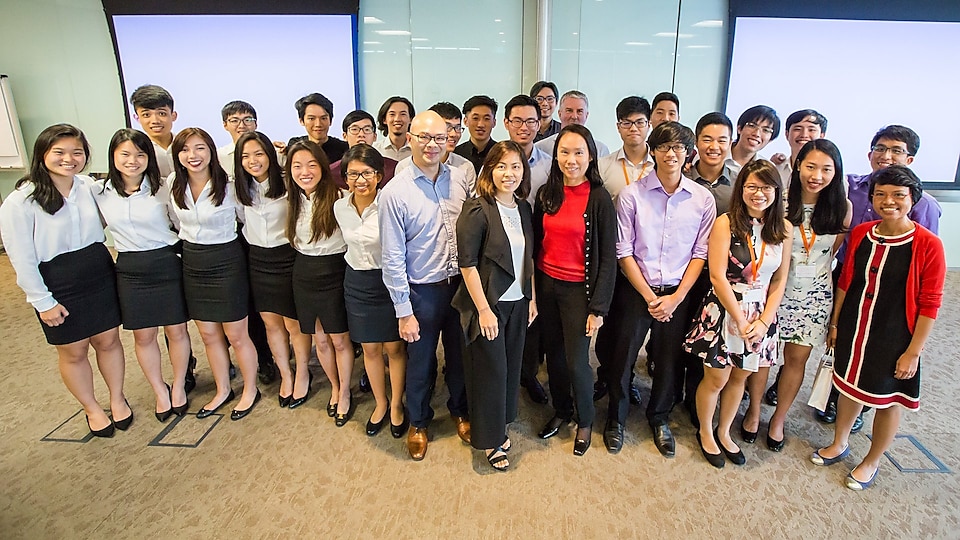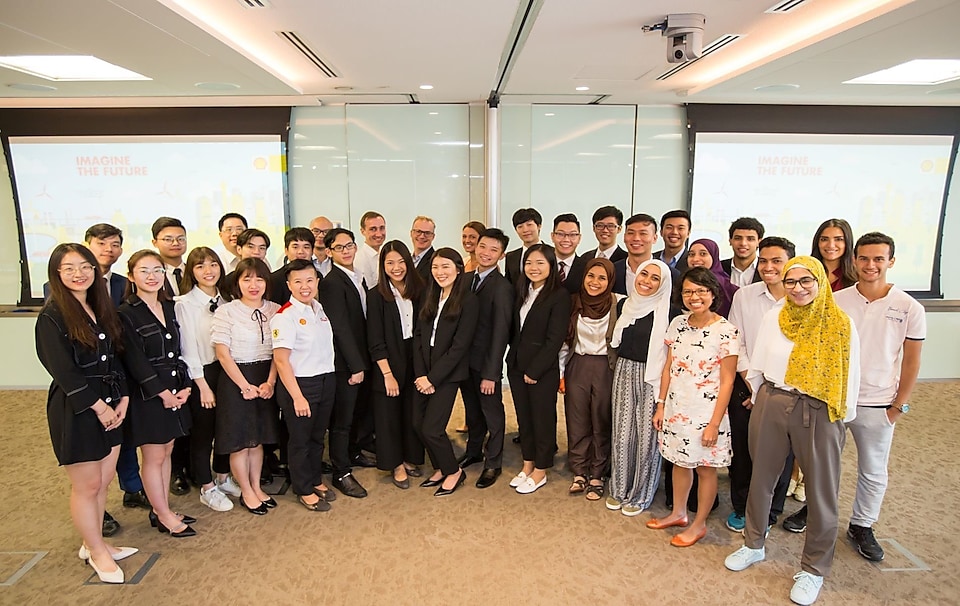
Imagine the Future Competition 2017/2018
Scenarios provide plausible alternative views of the future. Building and using scenarios can help us explore what the future might look like and the likely changes of living in it.
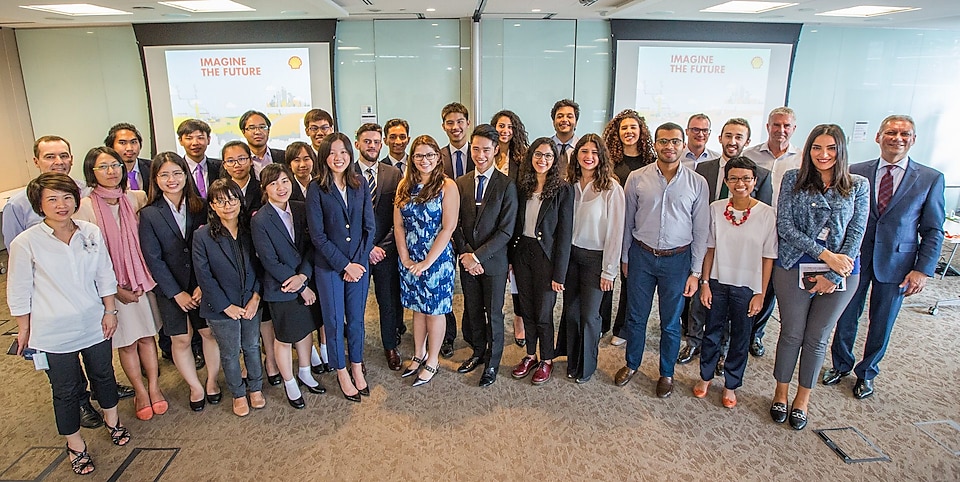
Imagine the Future: How we live, work, and play in 2050
Reliance on energy is deeply incorporated into modern life. From the lights we turn on the moment we wake up, to the transportation that takes us to the places that we need to get to – energy is present everywhere. With energy playing such an intrinsic role in our daily lives, this brings us to the question about what life could be like in the next few decades and the role energy would play in it. While one cannot fully predict the future, but current trends could give an indication as to what it would be like.
To help envision what our future holds, Shell invited university students in Egypt, Thailand, and Singapore to take part in the second edition of the Imagine the Future Scenarios Competition. The result was a series of contrasting scenarios of future Asian cities in 2050 based on the theme, “More and cleaner energy in urban Asian and Middle Eastern homes in 2050: How we live, work, and play”.
Receiving more than 12 entries from Singapore, Egypt, and Thailand, the national finals were held in the respective countries and the winning national teams competed in the regional finals in Singapore on March 5, 2018. With rich references to history and comprehensive exploration of how technology, politics, society, and individual choices play a role in shaping the future, the Singapore team came out top, with the Egypt and Thailand teams securing 2nd and 3rd place respectively.
Here’s an excerpt of the scenarios plotted by this year’s national teams:
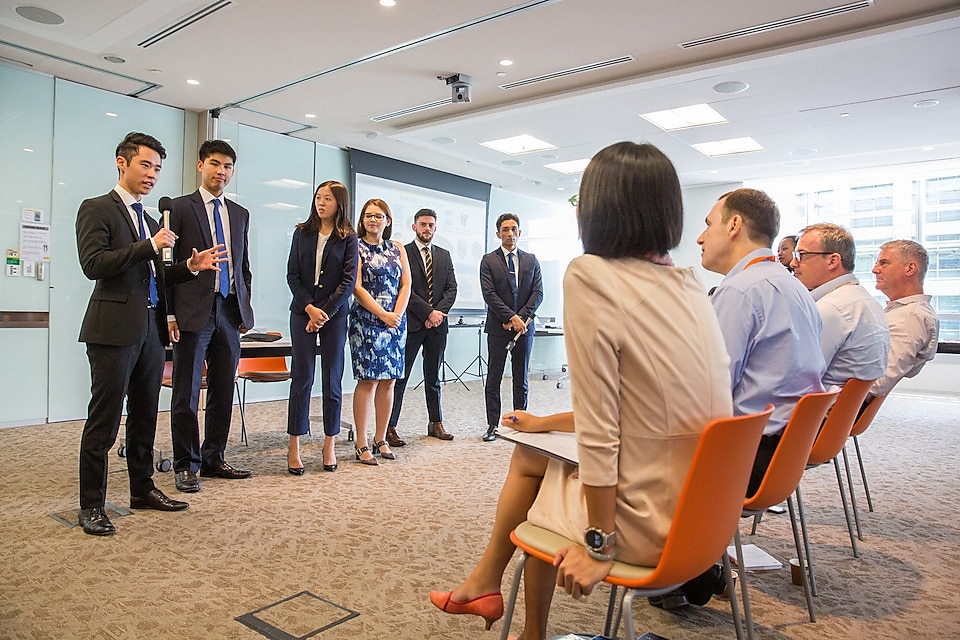
A Binary World vs A Dispersed Planet by Yale-NUS College, Singapore
Looking at two variables, the degree of centralization and access to private data, the Singapore team from Yale-NUS College formulated two scenarios: (1) The Binary World and (2) A Dispersed Planet. The first scenario depicted a highly centralised world, with governments and big firms having access to private data, making it easy for them to provide convenient and fuss-free services. A veritable utopia, the increased centralisation in this scenario also comes with greater risks and responsibilities to ensure that the system does not collapse. The second scenario showed empowered individuals with the autonomy to make their own choices – and even generate their own energy – free to exercise innovation and creativity and carve niches in society.
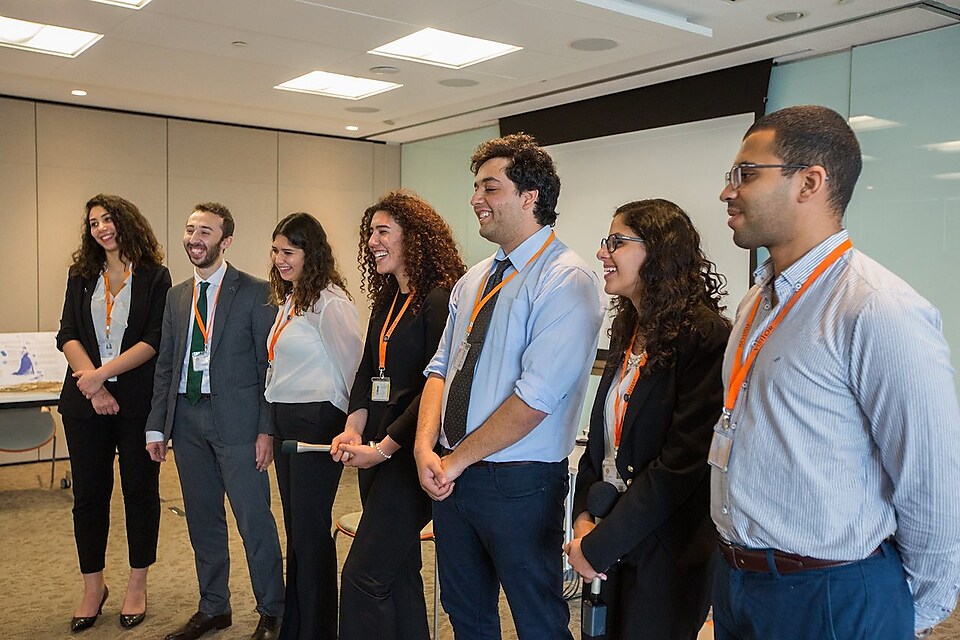
Adam Smith as President vs Elon Musk as President by the American University in Cairo, Egypt
As for the Egypt team, their scenarios explore the role of governments in initiating mass projects versus entrepreneurship as the order of the day, with the government playing a support role in investment policies. In the first scenario, the government leads and regulates agriculture along with other sectors in society. With real time maps to advise farmers on which plants to grow in certain areas to advances in solar water system technology, this society has taken great advances in technology. In the second scenario which focuses on entrepreneurship, the people are provided spaces for research, leading to innovations such as smart fertilizers, use of artificial intelligence to monitor crops, and diversified sources of energy.
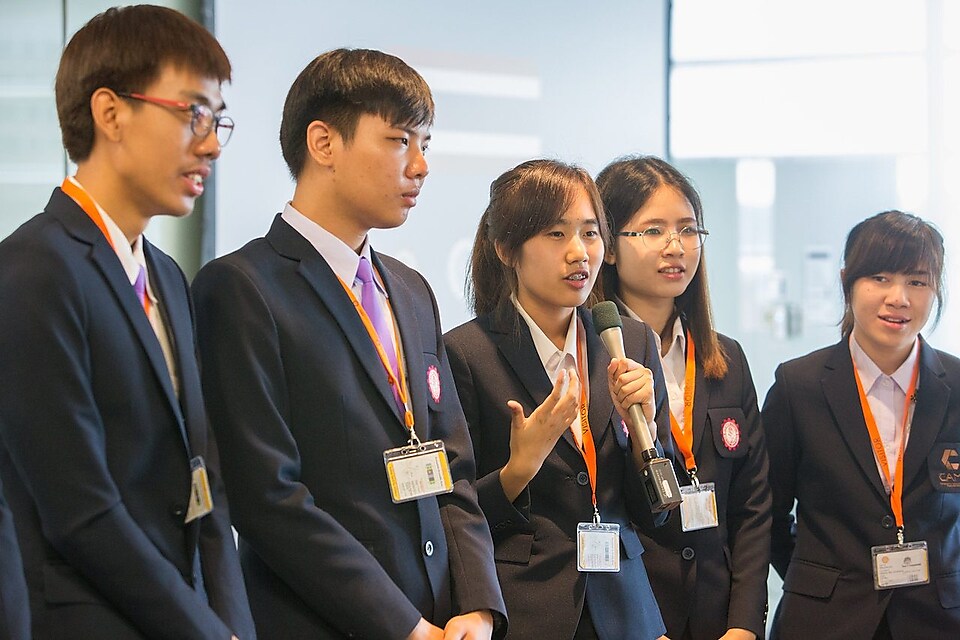
Idea City vs Economic City by Chiang Mai University, Thailand
With focus given to population density, the Thailand team’s first scenario is a city with low population density and an inspiring atmosphere. The abundance of green spaces lets the creative juices flow, coupled with smart technologies and a laid-back life which allows the city to keep its culture and traditions intact. Meanwhile, the second scenario takes us to a city with high population density. Modern technology combined with a highly advanced educational system enable fast exchanges on data and investments, helping the economy to flourish.
The three teams presented their illustrations of what our future could look like at the Powering Progress Together Forum on March 8, 2018 as part of the Make the Future Festival in Singapore. By stretching one’s way of thinking to understand the opportunities and uncertainties that lie ahead, this initiative by Shell probes on the youth’s minds to see how they envision the future and how they can play a part in addressing future energy challenges.
CATCH THE HIGHLIGHTS
Title: The Imagine The Future Journey
Duration: 1 minute 25 seconds
Description:
Highlighting the moments contestants from Singapore, Egypt and Thailand went through during the Imagine The Future competition.
[Text Display]
The Imagine The Future Journey
[Video Footage]
Landscape of buildings
[Video Footage]
A model of buildings
[Video Footage]
A man looking down.
[Video Footage]
Sunrise over buildings
[Dialogue: Male]
The future that I’m gonna grow up in will be one where people have more empathy towards each other.
[Video Footage]
A man turning his head smiling.
[Video Footage]
A man conducting a training
[Video Footage]
A woman listening while nodding her head.
[Video Footage]
A man conducting a training.
[Video Footage]
Male interview
[Video Footage]
Writing on a notebook
[Dialogue: Female]
It’s going to be very exciting with a lot of collaborations.
[Video Footage]
A man writing on a notebook
[Video Footage]
A woman talking while supporting her head with her fists.
[Video Footage]
Female interview
[Video Footage]
A group of people discussing at a table.
[Video Footage]
Time-lapse of Shell Metropolis building.
[Text Display]
The National Finals
[Video Footage]
A group of people presenting excitingly
[Video Footage]
A judge turns his head.
[Video Footage]
A woman speaking.
[Video Footage]
An audience member listening.
[Video Footage]
A judge giving his comments.
[Video Footage]
A man presenting while gesturing with his hands.
[Video Footage]
A judge listening intently.
[Video Footage]
A group of people listening.
[Video Footage]
A man smiles while holding onto a microphone.
[Video Footage]
A woman nods her head in agreement.
[Video Footage]
A group of people raise their hands up high.
[Text Display]
The Regional Finals
[Video Footage]
Teams giving high fives to each other.
[Dialogue: Male]
We began to construct scenarios based on trends, and these trends form predictions.
[Video Footage]
A wooden model being displayed.
[Video Footage]
A group of people with their hands together.
[Video Footage]
An Egypt ambassador listening.
[Video Footage]
A male presenting.
[Dialogue: Female]
We want to focus on how we can live with the nature.
[Video Footage]
A judge putting his hands on his chin as he listens.
[Video Footage]
A man presenting.
[Video Footage]
A woman presenting.
[Dialogue: Female]
No scenario is more or less plausible than the other, it is in the end about the choices we pursue as people and as individuals.
[Video Footage]
A man explaining to a woman.
[Video Footage]
A group of people standing together reading and commenting.
[Video Footage]
A group of people getting reading to take a photo while holding onto a flag.
[Video Footage]
A woman laughing while sitting with a group.
[Video Footage]
A woman presenting.
[Video Footage]
A group of people laughing.
[Video Footage]
A group of people standing together nodding their heads in thankfulness.
[Text Display]
The One-Day Experience
[Dialogue: Male]
This competition has gotten me thinking about how the choices I make actually have a very real impact on sustainability.
[Video Footage]
A landscape shot of Singapore
[Video Footage]
Cars driving through a tunnel
[Video Footage]
A large group of people standing outside a Shell Retail Station wearing safety vests.
[Video Footage]
A Shell Retail Station worker attending to a car.
[Video Footage]
A group of people walking down Gardens by the Bay.
[Video Footage]
A woman turning her head as she looks out the window at the Singapore skyline.
[Video Footage]
A group of people surrounding a huge model.
[Dialogue: Female]
I wanted to make sure that we’re utilising the ability to produce.
[Video Footage]
Female Interview
[Video Footage]
A man explaining to someone while gesturing his hands.
[Video Footage]
A female explaining to two men while gesturing her hands.
[Video Footage]
A woman listening to a guide explaining.
[Dialogue: Female]
The only thing that’s missing is that for us to start, to be willing to take action.
[Video Footage]
A group of people standing outside a Shell Retail Station as a train passes by.
[Video Footage]
Female interview
[Video Footage]
A group of men walking past down.
[Video Footage]
A group of people walking across a bridge.
[Text Display]
The Forum
[Dialogue: Male]
What we do know is that will change our imagination of life.
[Video Footage]
An exhibition
[Video Footage]
A male presenting at the Powering Progress Together Forum.
[Dialogue: Female]
We have to realise our world is changing in many ways.
[Video Footage]
A group of middle-aged people listening.
[Video Footage]
A woman speaking to a group of people.
[Video Footage]
A man speaking.
[Video Footage]
Female interview.
[Dialogue: Male]
I think the future world in 2050 will be one where we’re constantly challenging ourselves, constantly pushing forward, constantly being human.
[Video Footage]
A man standing on stage as the lights dim.
[Video Footage]
Groups of people standing around the exhibition.
[Video Footage]
A man and woman speaking.
[Video Footage]
A man presenting at the Forum.
[Video Footage]
A man shaking hands with a woman.
[Video Footage]
A man listening to comments.
[Video Footage]
Male interview
[Video Footage]
A man presenting while gesturing his hands forward.
[Video Footage]
A man standing on stage as the lights dim and a video plays behind him.
[Video Footage]
A woman presents.
[Video Footage]
A group of people gather for a photo.
[Video Footage]
A man chatting with a woman.
[Video Footage]
Time-lapse of a train station
[Video Footage]
A man presenting in front of a board.
[Video Footage]
A group of people laughing
[Video Footage]
Time-lapse of a water display
[Video Footage]
A woman explaining with hand gestures.
[Video Footage]
A man replies
[Video Footage]
A man and woman joking and having fun.
[Video Footage]
Two women discussing.
[Video Footage]
A panel of people posing for a photo.
[Video Footage]
A woman walking down.
[Video Footage]
Time-lapse of a train going down a city.
[Text Display]
Imagine The Future
[Shell Hecten]
[Shell Jingle]
Follow their Competition Journey
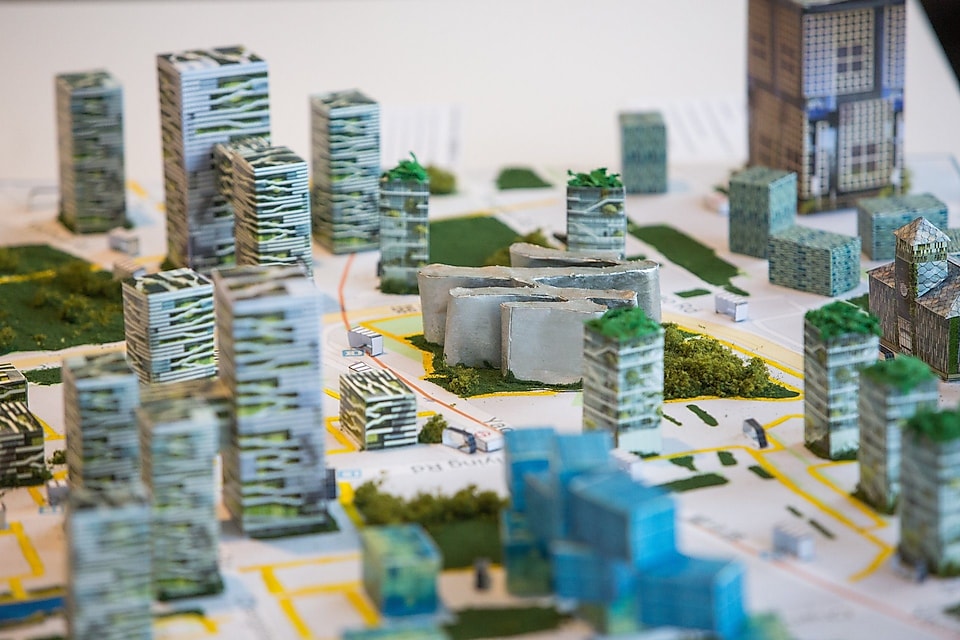
How would we live, work and play in 2050?
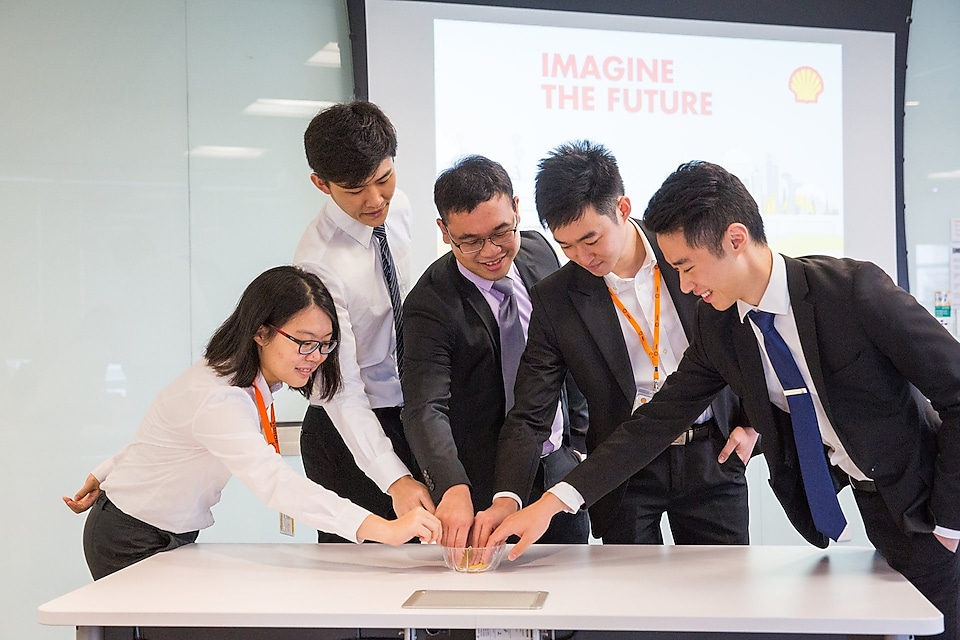
Together, we can Imagine the Future.
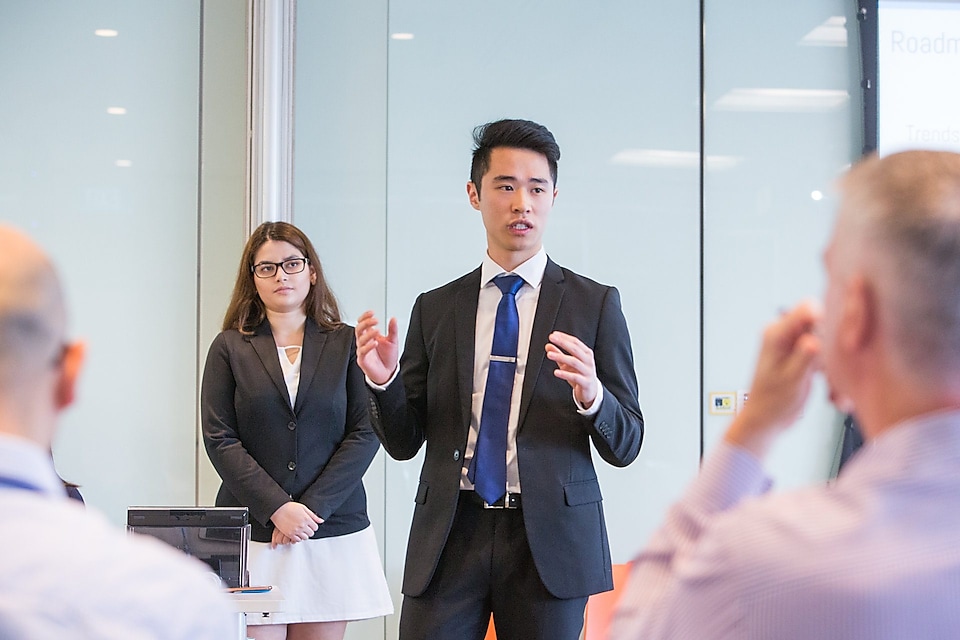
Scenarios provides us with plausible alternative views of the future.
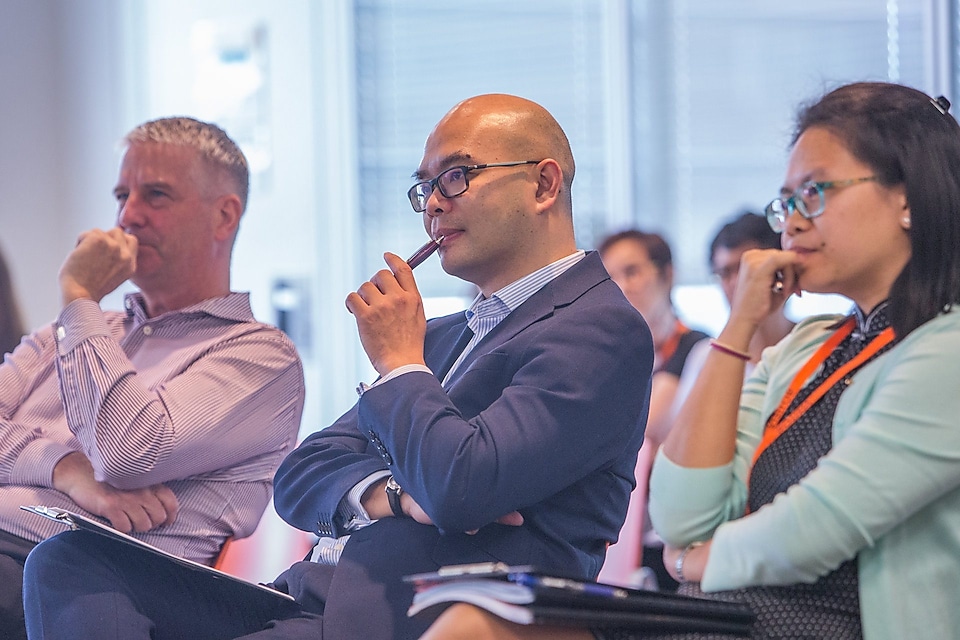
Imagine the Future Scenarios Competition allows us to think of a cleaner and more energy efficient future.
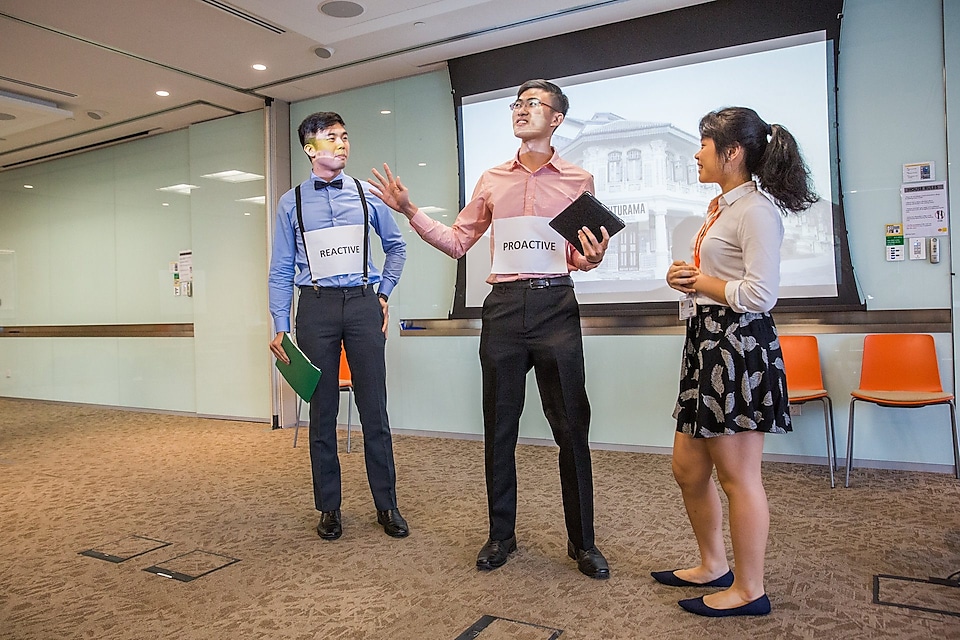
Teams of students from universities in Egypt, Singapore and Thailand participated in the Competition.
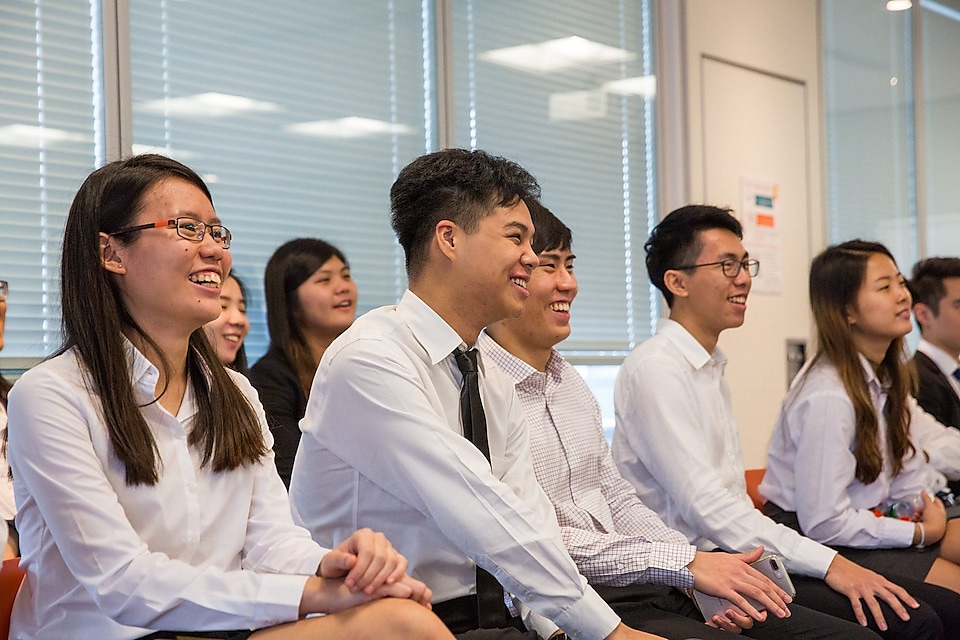
Discover what possibilities lies in the future of energy through the Imagine the Future Scenarios Competition.
You might also be interested in
Imagine the Future Competition 2016/2017
Scenarios provide plausible alternative views of the future. Building and using scenarios can help us explore what the future might look like and the likely changes of living in it. Since 2016, Shell has been inviting university students to imagine the future of more and cleaner energy in Asian cities and how it will change the way we live, work and play.
Imagine the Future Competition 2018/2019
Participants from Imagine the Future Scenarios Competition 2018/2019 share their experiences.
